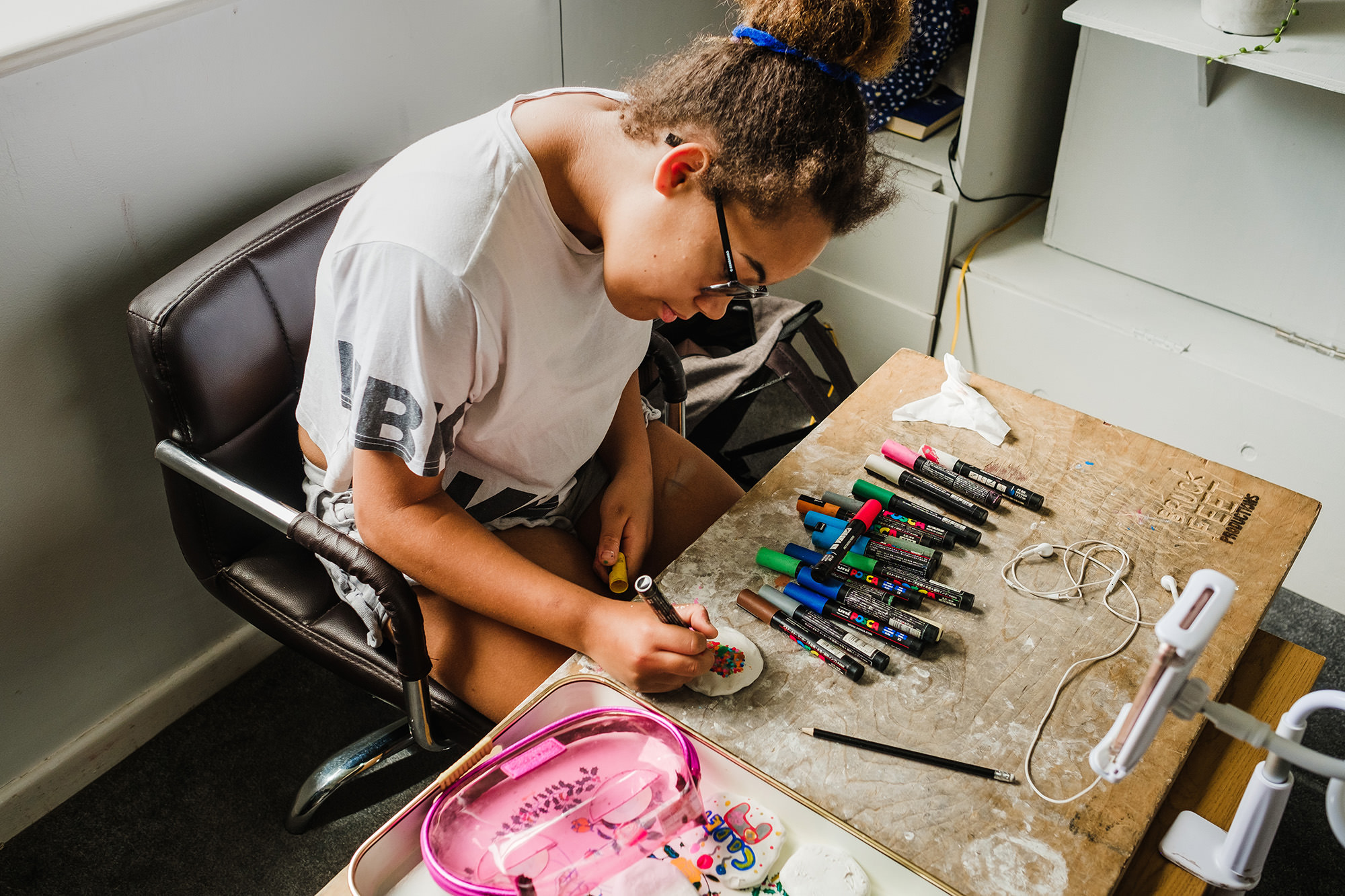Have you ever felt like you don’t belong? Like everyone around you knows better and is just a moment away from calling you out and exposing you as a fraud? Uncovering you as someone who actually has no clue?
It’s what we call Impostor Syndrome and you’re not alone!
If you are a creative, I bet you’ve felt this at least once before. According to this article, published in the International Journal of Behavioral Science, an estimated 70% of people experience the so-called impostor phenomenon at some point in their lives. It doesn’t just happen to creative people.
So, you see, you’re in good company if you struggle with these feelings. Many feel it all the time and it can be hard to overcome. But it’s not impossible. In this article, I’ll try to give you a few pointers and suggestions on how to deal with impostor syndrome.



How to deal with impostor syndrome
Psychologists Pauline Rose Clance and Suzanne Imes first identified the impostor syndrome in 1978. While they found that mainly women were affected by it, later research showed that men and women are equally prone to experience it actually.
Impostor syndrome is the feeling that your success is based on luck and not your talent or qualifications. That can make people feel under-qualified or like a fraud. There are lots of papers, research and articles published that go deeper into what type of people are most likely to suffer from it. This article here is not going to be a research paper. Instead, I’d like to give you a few tools on how to deal with this feeling of inadequateness if you experience it.
1. Acknowledge the thought
First of all, when you notice those feelings of not being good enough and waiting for people to call you out, be aware of what’s happening. Listen to those thoughts and acknowledge them. But don’t feed them. By being aware that’s what’s happening, you can work on reframing your thoughts and mind.
2. Push through by learning
If you feel like you’re not good enough and people will call you out – do your very best to improve your skills that you’re afraid to show. Everybody has to start somewhere – nobody is born a professional and chances are, you can still improve. And by accepting the fact that you can learn and get better, you basically prove yourself wrong. You’re not incapable at all, you’re learning and showing yourself that the skills you have are in fact what you claim them to be.
3. Show up and prove your inner critic wrong
When you skill up and understand that you need to reframe your mind and believe in yourself and what you’re capable of, it can help to show the world as well what you’re up to. Go against that nagging feeling that you’re not ready, not good enough and position yourself as the expert you are. The more you do that, the more confident you will automatically become. This might take a while though so be patient – and it might take a lot of convincing yourself. But don’t give up and be consistent in all of what you do.
4. Surround yourself with the right crowd
Sometimes all we need is a cheerleader. One that doesn’t get tired to tell us we are capable, talented, right for the job. However, this person should probably not be your mum – she’ll always be on your side and support you no matter what and chances are you won’t take her praise seriously. Instead, get yourself a group of friends or colleagues you can trust. You need people who are honest and able to judge your knowledge and skills in a way to tell you when you’re off track.
It really is important to have a support network that has your back as well as being honest. Having your best friend, your partner or your parents blow smoke up your bum might feel good in the moment but it won’t necessarily get you past your impostor syndrome. Because deep down you might think that they say those things because they love you and want you to succeed. It’s important to have a colleague call you out on something you can improve on – it will help you take their praise and support more serious.
5. Stop comparing yourself
One of the biggest reasons for dealing with impostor syndrome is comparison. We compare ourselves to others all the time but what we ignore is the fact that we know all our flaws, know all the times we failed or didn’t quite succeed. We compare that with a finished output of everyone else that we can see online. Of course, those two things can’t keep up with each other. I’ve once read the quote “Don’t compare your outtakes to everyone else’s showreel.” Need I say more? Just stop it!
6. Put yourself out there anyway
This is for the brave… To prove yourself wrong and show that your ARE capable and skilled to do the job you want to do, you might have to just go for it one day. Put on your big girl (or boy) pants and do it! Put yourself out there, show yourself as an expert on your website, you blog, your social media channels and see what happens. I’m pretty sure life will go on and nobody will call you out (there are exceptions to the rule I’m sure but I trust that you actually do know what you’re talking about).
The next step would be to pitch yourself or an idea to any kind of publication – a magazine, a journalist, a podcast. The opportunities to show up as an expert are endless these days and at one point, it might be worth to just go for it. You know how some days you feel brave and good about yourself and the work you do? Those are the days to share that with the world. And once someone tells you that they’d love your input, listen to that instead of your impostor syndrome!
7. Be yourself
If none of the tips above really help you, then don’t stress. There’s no need to rush through this process – it can take a while to trust yourself and your skills. It also depends on your type of personality, your upbringing, your surroundings how you deal with challenges. So keep doing your work from a place of authenticity and honesty – don’t try to be like someone else or even copy another person’s work. That won’t help the feeling of not feeling good enough. Instead, be yourself, be patient and try to trust your skills.



Getting out of the cycle of not feeling good enough or the right person for a task or job can take a long time. Weirdly enough, impostor syndrome can even get worse the more successful you are. But it’s a conscious decision to work on this once you notice it in yourself.
My own journey
In 2020, my business has been hit hard. I didn’t pivot like a lot of other photographers which in turn made me feel like a failure and not capable of running a business. But with the constant support of my friends, my audience and my clients, something switched inside of me recently. I’m still unsure if I do things right and am sometimes waiting for others to call me out but I noticed that this happens a lot less now. I’ve had a few brave moments where I put myself forward to teaching and speaking gigs (successfully) and I managed to get on two new podcasts over the past weeks. The fact that both podcasts are brand new helped me in the sense that I know the audience will be small for a while – that made it less scary. I found this a great opportunity to share my voice and still feel like I’m not going all in just yet.
The process of working on my confidence and fighting impostor syndrome is slow but I feel like it’s really worth all the effort I’m putting in.
What about you?
So how about you? Do you suffer from impostor syndrome? Have you been able to overcome it? What is your experience with this whole topic? Feel free to get in touch to have a chat!






